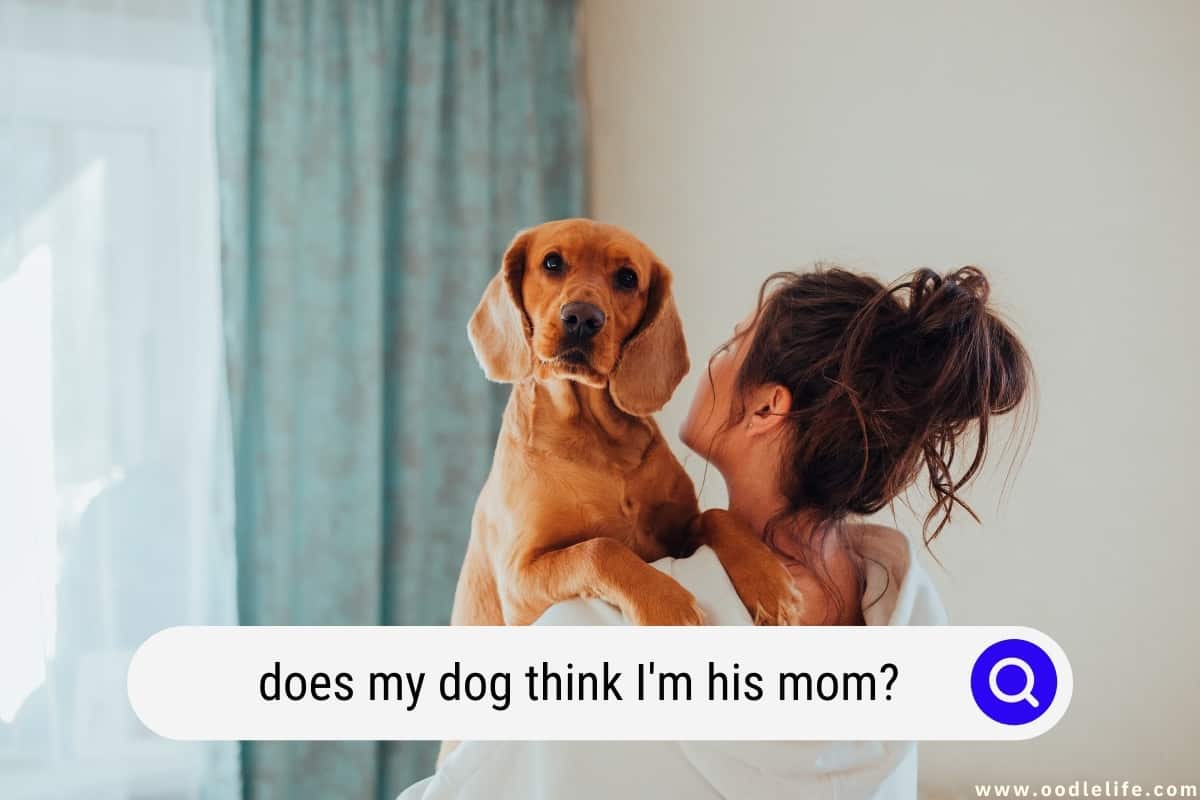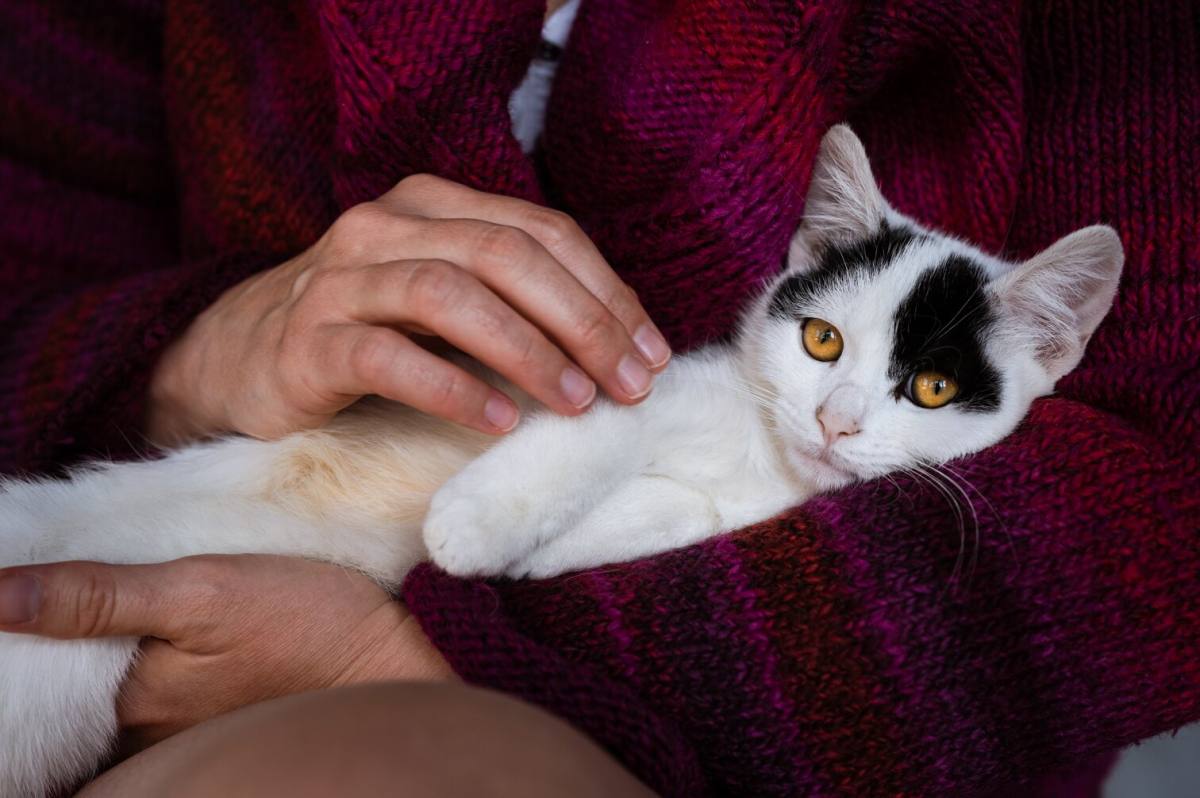It's a thought many of us cat parents have, isn't it? We look at our little furry companions, so trusting and sweet, and wonder if they see us as their actual birth mother. The question itself, "Does my kitten think I'm her mom?", is a pretty common one, yet it also brings up some interesting points about how we put our words together. So, that very question, in fact, holds a little secret about the way our language works, especially when we're trying to figure out what's going on in a tiny feline brain.
You see, when we ask something like this, we're using particular word forms that help us get our point across clearly. These small words, often overlooked, play a rather significant role in making sure our sentences make sense. They're like the quiet helpers in the background, ensuring our thoughts are properly expressed, whether we're talking about a cat's perception or anything else, you know? It's all about picking the right tool for the job, grammatically speaking.
This little piece of writing will help us look at why we use "does" in that specific question about your kitten. We'll explore the way these helper words operate, giving us a clearer picture of their function. It’s a bit like learning the secret handshake of sentence construction, honestly, especially when we're trying to figure out how our little companions might perceive us.
Table of Contents
- Why "Does" for Your Kitten's Thoughts?
- How Does This Apply to My Kitten's Actions?
- Can "Do" and "Does" Act Alone?
Why "Does" for Your Kitten's Thoughts?
What's the Scoop on "Do" and "Does"?
So, both "do" and "does" are forms of the verb "to do" in its current time frame. They are, in a way, like two sides of the same coin, yet they each have their own special job to do. Picking the right one, you see, really comes down to the subject of your sentence. That's the person, animal, or thing that's doing the action or being talked about. For instance, if you're talking about a single kitten, you'd pick one form, but if you're chatting about a whole group of kittens, you'd go with the other. It's a pretty straightforward idea once you get the hang of it, basically.
People sometimes mix these two words up, which is perfectly understandable. They're both quite common, and their jobs can seem similar at first glance. However, they carry different weights and are used in different situations. We're looking at them here in their present simple forms, which is how we typically ask about ongoing states or habits. This is really useful for things like asking if your kitten generally thinks something, not just at this very second. It’s a small distinction, but it makes a big difference in how clear your question comes across, you know?
When "Does" Fits Your Kitten's Question
Now, let's get to the heart of "does my kitten think I'm her mom." The reason "does" is the right choice here is because of the subject: "my kitten." A kitten, in this context, is a single creature, a "she" or an "it." In the present simple tense, when your subject is a single person, animal, or thing – like "he," "she," or "it" – you use "does." It's just how the language works, a bit like a rule for matching socks. For example, if you were to say "He does like tuna" or "She does enjoy naps," you'd be following the same pattern. This applies perfectly to the question about your kitten's perception, too, it's almost like a little linguistic puzzle piece.
This particular form, "does," is used for subjects that are singular. Think about it: "my kitten" is one kitten. If it were "my kittens" (plural), we would use "do." It's similar, in a way, to how you might use "is" for a single item ("The kitten is playful") and "are" for multiple items ("The kittens are playful"). This parallel helps illustrate the point, showing that this "singular versus plural" idea pops up in various parts of our language. So, when you're wondering about that one special feline, "does" is the word that truly fits, you know?
How Does This Apply to My Kitten's Actions?
Singular Subjects and "Does"
When we talk about a single subject doing something, especially in the present simple, "does" is our go-to word. This applies to your kitten, or any single pet, really. For instance, consider these situations: "Does your dog bark at the mail carrier?" or "Does the bird sing in the morning?" In each of these cases, the subject – "your dog," "the bird" – is just one, so "does" is the correct choice. It's about matching the verb's form to the number of the subject. This rule helps keep our sentences clear and grammatically sound. It's a pretty fundamental aspect of how we structure our questions and statements about individual entities, as a matter of fact.
Let's think about some more examples involving a single kitten and what she might do or feel. "Does your kitten enjoy chasing string?" Here, "your kitten" is a single entity, so "does" is perfectly placed. Or, "Does her purr vibrate the floor?" Again, we're talking about one purr from one kitten. This pattern holds true across countless sentences where a singular subject is performing an action or having a feeling. It's a consistent rule, which makes it easier to remember once you grasp the basic idea. So, any time you're focusing on one specific creature, "does" is usually the word you'll need, you know?
Plural Ponderings and "Do"
On the flip side, when your subject is more than one, or when you're using certain pronouns like "I," "you," "we," and "they," you'll typically use "do." So, if you had multiple kittens, you might ask, "Do my kittens play together?" Here, "my kittens" is a group, so "do" is the proper fit. Similarly, if you're talking about yourself or a group of people, you'd say, "Do I need to buy more cat food?" or "Do we take the cats to the vet today?" This distinction between singular and plural subjects is a key part of using "do" and "does" correctly. It's about making sure your verb agrees with the number of the noun or pronoun it's connected to, basically.
Consider other examples that highlight the use of "do" with plural subjects or specific pronouns. "Do the neighborhood cats visit your garden?" Here, "the neighborhood cats" represents more than one, so "do" is appropriate. Or, "Do you feed your pets twice a day?" Even though "you" can refer to one person, it always takes "do" in this context. It's a bit of a special case for those pronouns, but it's consistent. This pattern helps us ask questions about groups or about actions involving "I," "you," "we," or "they," making our communication precise. So, when you're not dealing with a single "he," "she," or "it," "do" is usually the word that steps up, you know?
Can "Do" and "Does" Act Alone?
Auxiliary Helpers for Your Kitten's Queries
"Do" and "does" often work as helper words, also known as auxiliary verbs. They come before another main verb to form questions or negative statements. In our original question, "Does my kitten think I'm her mom?", "does" is acting as that helper. The main verb here is "think." "Does" is simply assisting "think" in forming the question. It doesn't carry the primary meaning of the action; it just helps set up the sentence structure. This is a very common role for these words, especially when we're trying to figure things out or express a lack of something. It's like they're the stagehands, setting up the scene for the main actor, you know?
Consider how these helper words assist in other pet-related questions. "Does your dog fetch the ball?" Here, "does" helps ask about the action of "fetch." Or, "Do the birds sing in the morning?" "Do" assists "sing." They also pop up in negative statements, like "My cat does not like baths" or "We do not feed our fish too much." In these instances, "does" and "do" are still serving their helper role, allowing us to express a negative idea. They are, in some respects, quite versatile, enabling us to build a variety of sentence types without having to change the main verb's form too much.
Standing Strong as Main Verbs
Interestingly, "do" and "does" can also stand on their own as main verbs, meaning they represent the primary action in the sentence. When they're used this way, they refer to the act of performing or carrying out something. For example, if someone asks, "Who will clean the litter box?" you might respond, "I will do it." Here, "do" is the main verb, meaning to perform the cleaning. Or, "She does her chores every day." In this case, "does" means she performs her chores. This shows their flexibility, as they're not always just helping other verbs; sometimes, they are the stars of the show themselves, basically.
Think about how this might apply to a pet's routine or a pet owner's tasks. "My cat does a little dance before mealtime." Here, "does" describes the act of dancing. Or, "He does his best to be a good companion." In these sentences, "does" is not assisting another verb; it is the verb that describes the action being carried out. This dual role, as both a helper and a main verb, makes "do" and "does" quite important in our everyday communication. It's pretty cool how a single word can have a couple of different jobs depending on how it's used, isn't it?
Related Resources:



Detail Author:
- Name : Marian Hermann
- Username : mmuller
- Email : agustina.harvey@yahoo.com
- Birthdate : 1988-08-04
- Address : 966 Alverta Plains Apt. 395 South Benjamin, SC 89531-8454
- Phone : (912) 256-1261
- Company : Olson-Gleason
- Job : Musician
- Bio : Enim eos in ea asperiores id numquam eligendi alias. Repellat voluptatem sit aut quod molestiae. Ratione vero rerum alias voluptas cum ratione voluptate.
Socials
instagram:
- url : https://instagram.com/jedidiah_dev
- username : jedidiah_dev
- bio : Aut explicabo excepturi ut eius est sit. Laborum sit odio molestiae saepe aliquam.
- followers : 444
- following : 2822
linkedin:
- url : https://linkedin.com/in/jschultz
- username : jschultz
- bio : Illo recusandae optio aliquid et quos.
- followers : 2098
- following : 263
facebook:
- url : https://facebook.com/jedidiah_real
- username : jedidiah_real
- bio : Saepe occaecati sapiente magni modi consectetur qui.
- followers : 647
- following : 1133
twitter:
- url : https://twitter.com/jedidiahschultz
- username : jedidiahschultz
- bio : Sed velit quidem aut aperiam in in sit. Placeat sint autem repellat sit voluptatem. Dolores nihil esse assumenda vel dicta non.
- followers : 511
- following : 1230
tiktok:
- url : https://tiktok.com/@jedidiah_schultz
- username : jedidiah_schultz
- bio : Deleniti optio debitis totam ab.
- followers : 2815
- following : 983